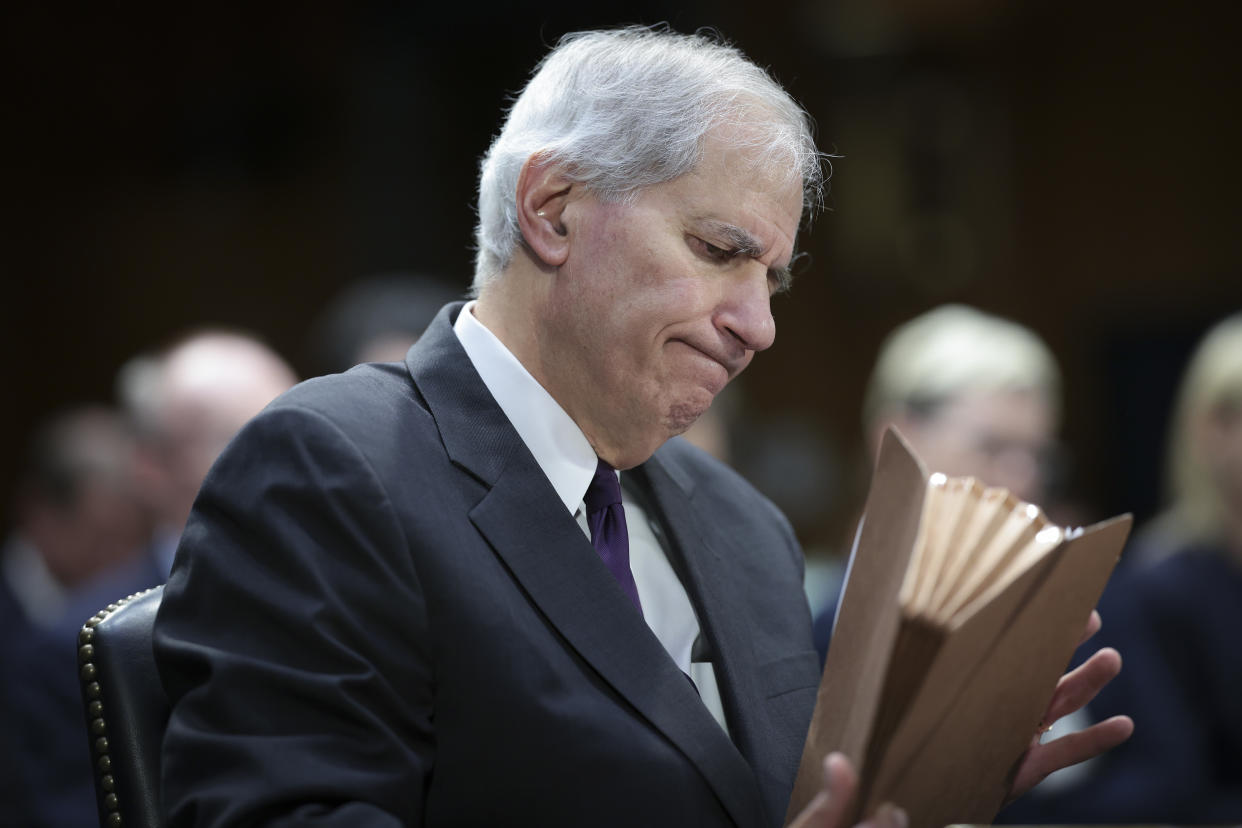FDIC proposes Congress increase deposit insurance limits for payroll accounts
The FDIC on Monday proposed increasing deposit insurance limits for business payment accounts at banks in light of Silicon Valley Bank's failure, something that would require Congressional action.
The recommendation comes as technology companies and venture capital firms that kept deposits at Silicon Valley Bank far in excess of FDIC's $250,000 limit risked not having cash available to pay employees or suppliers when the Santa Clara bank failed. Regulators invoked special authorities to guarantee uninsured deposits.
"The recent failures of Silicon Valley Bank and Signature Bank, and the decision to approve systemic risk exceptions to protect the uninsured depositors at those institutions raised fundamental questions about the role of deposit insurance in the United States banking system," the FDIC said in a new, long-awaited report.

Large concentrations of uninsured deposits increase the potential for bank runs and can threaten the banking system, as seen with SVB and Signature's failure. The FDIC says the business of banking remains susceptible to runs.
Deposit insurance is used to offer assurance to depositors that they will have access to their funds if a bank fails, protects against depositor losses, lowers the risk of bank runs, and promotes financial stability.
While the overwhelming amount of deposit accounts remain under the $250,000 insurance limit, growth in uninsured deposits has increased the exposure of the banking system to bank runs, according to the report.
At its peak in 2021, uninsured deposits accounted for nearly 47% of domestic deposits, according to the FDIC, higher than at any time since 1949.
Uninsured deposits are held in a small share of accounts but can be a large proportion of banks' funding, especially among the largest banks measured by assets, says the agency.
FDIC officials said they were "surprised" with the how quickly the bank runs occurred. The report points to the role social media played in the rapid demise of the banks, noting that it could increase to risk of bank runs in the future.
"The speed with which information is disseminated and the speed with which depositors can withdraw funds in response to information may contribute to faster and more costly bank runs," the report read.
Raising deposit insurance for business accounts would offer substantial additional coverage to business payment accounts without extending similar insurance to all deposits, something the FDIC says would offer more benefits than costs to financial stability.
The FDIC cautions that offering higher coverage for business accounts could be exploited by individuals, trusts, or estates that aren't technically business accounts and that lawmakers would need to carefully define the criteria for qualifying accounts.
In the report, the FDIC also offers two other options for reforming the deposit insurance system, including extending unlimited coverage — fully insuring all deposits — and maintaining the current system with the potential to raise the limit from the current $250,000 per account.
All three options would require Congressional action — something lawmakers in both parties have discussed since SVB’s failure.
The FDIC also floated the idea of requiring clients with very large uninsured accounts to have banks require them to post collateral to reduce the risk of pulling funds suddenly.
The report also notes increases to the deposit insurance limit would increase the size of the deposit insurance fund, requiring banks to pay higher assessments into the fund.
While acknowledging that deposit insurance can create moral hazard by providing an incentive for banks to take on more risk, the report notes that regulation, supervision, and deposit insurance pricing are needed for the deposit insurance system to meet its financial stability goals.
Read the latest financial and business news from Yahoo Finance
